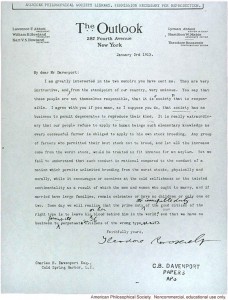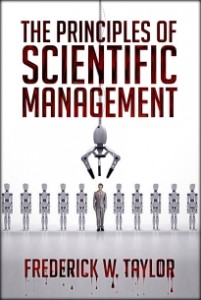R.Z. Mason, mayor of Appleton, WI, “The Duty of the State in its Treatment of the Deaf and Dumb, the Blind, the Idiotic, the Crippled and Deformed, and the Insane.” [Source / Italics added, bold text added] In the progress of modern civilization, the state has come slowly to a recognition of certain duties and …
Category: Progressive Era
Leon Cole on the Social Body and Our Duty to Future Generations
From The Relation of Philanthropy and Medicine to Race Betterment by Leon J. Cole, University of Wisconsin, at the First Conference for Race Betterment (1914) Among those who have in their treatment of this subject emphasized the importance of the natural selection viewpoint may be mentioned especially Herbert Spencer, Francis Galton, and Karl Pearson, the …
Letter by Theodore Roosevelt to Charles Davenport: Society should not permit degenerates to reproduce their kind.
From The Outlook, January 3rd letter of 1913 [Source] My dear Mr. Davenport: I am greatly interested in the two memoirs you have sent me. They are very instructive, and, from the standpoint of our country, very ominous. You say that those people are not themselves responsible, that it is “society” that is responsible. I …
Eugenicists Shared in Common with the Nazis Concepts of the “Social Body.”
One of the under-appreciated elements of what animated the eugenics mindset was the view that each species could very well be conceived of as a ‘body’ of sort. A different level of moral calculation could be applied to the ‘social organism’ or ‘social body’ then the individual. This is no mere invoking of the ‘common …
Frederick Taylor and the Connection Between Eugenics, Capitalism, and Communism: Scientific Management
Buy “Scientific Management” on Amazon | Kindle | Nook Frederick Taylor and the Connection Between Eugenics, Capitalism, and Communism: Scientific Management Frederick Winslow Taylor has blood on his hands. Judging from the reaction typical of those familiar with Taylor’s work, the idea that he, or at least, his ideas, were complicit in any great crimes …
- 1
- 2



Recent Comments